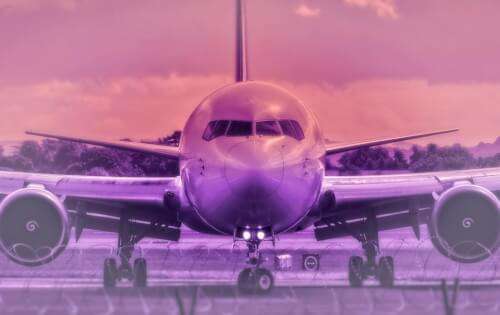Schneider Electric and DHL Global Forwarding’s collaboration on a sustainable aviation fuel initiative marks a significant stride towards diminishing Scope 3 emissions in air freight.
The logistics sector is witnessing a transformative approach to reducing carbon emissions, particularly within air freight’s Scope 3 category, through the adoption of sustainable aviation fuel (SAF). SAF’s emergence as a biofuel alternative to traditional jet fuel offers a reduced carbon footprint, yet its global supply lags behind the rising demand.
Despite SAF’s production being a mere 0.1% of total jet fuel consumption in 2022, the International Air Transport Association (IATA) reports a five-fold increase over three years, signaling strong market demand. To meet this demand, IATA emphasizes the urgency for accelerated SAF investment, driven by international policies and airline commitments.
Innovative Partnership for SAF Adoption
In alignment with IATA’s vision, DHL Global Forwarding and Schneider Electric have embarked on a pioneering SAF initiative. This partnership aims to establish the air cargo industry’s inaugural multimodal SAF shipping model, integrating sea and air freight to offset the higher costs of SAF by capitalizing on the savings from sea freight.
This novel multimodal strategy not only addresses the carbon emission challenges of air freight but also leverages the cost-effectiveness of sea transport. The pilot program has successfully implemented two ‘SAF bridges’ between Asia and North America, with plans to expand to eight additional routes.
Multimodal Shipping: A Path to Carbon Neutrality
Schneider Electric’s innovative ‘bridges’ have demonstrated up to a 40% reduction in carbon emissions on selected shipping lanes compared to conventional air freight. The flexibility of choosing between air freight and multimodal shipping allows for strategic decision-making based on various operational factors, enhancing supply chain resilience.
DHL Global Forwarding’s GoGreen Plus service complements this model by offering SAF options, potentially achieving up to 90% carbon-neutral delivery paths. This end-to-end capability empowers Schneider Electric with the agility to manage a more sustainable and efficient supply chain.
Broader Industry Support for SAF
The Sustainable Aviation Buyers Alliance (SABA) is another key player in expanding SAF production, encouraging investment and assisting companies in meeting their climate objectives. With the support of air carriers, professional services, and tech giants like Meta, Microsoft, and Google, SABA is fostering a collective commitment to supply chain decarbonization.
Meta’s involvement with SABA since 2021, including direct procurement of SAF from airline partners, underscores the tech giant’s dedication to achieving net-zero value chain emissions by 2030. Meta’s Global Sustainability Director, Blair Swedeen, highlights the importance of third-party certification in verifying the impact of SAF on carbon intensity reductions.
The collaborative efforts of Schneider Electric, DHL Global Forwarding, and SABA represent a concerted industry movement towards sustainable aviation fuel as a viable solution for reducing air freight’s carbon footprint. This initiative not only aligns with corporate sustainability goals but also sets a precedent for the logistics industry’s commitment to environmental stewardship.




